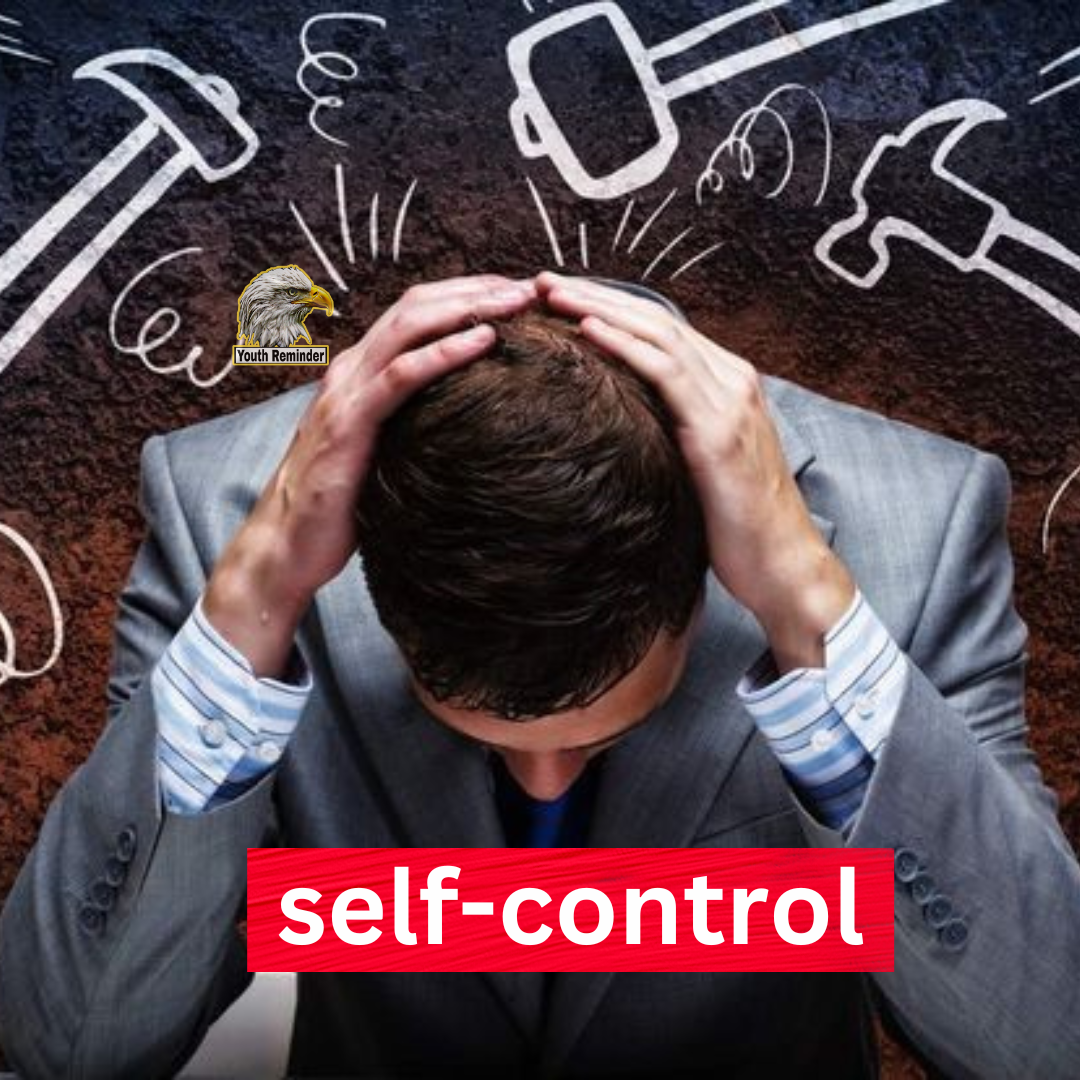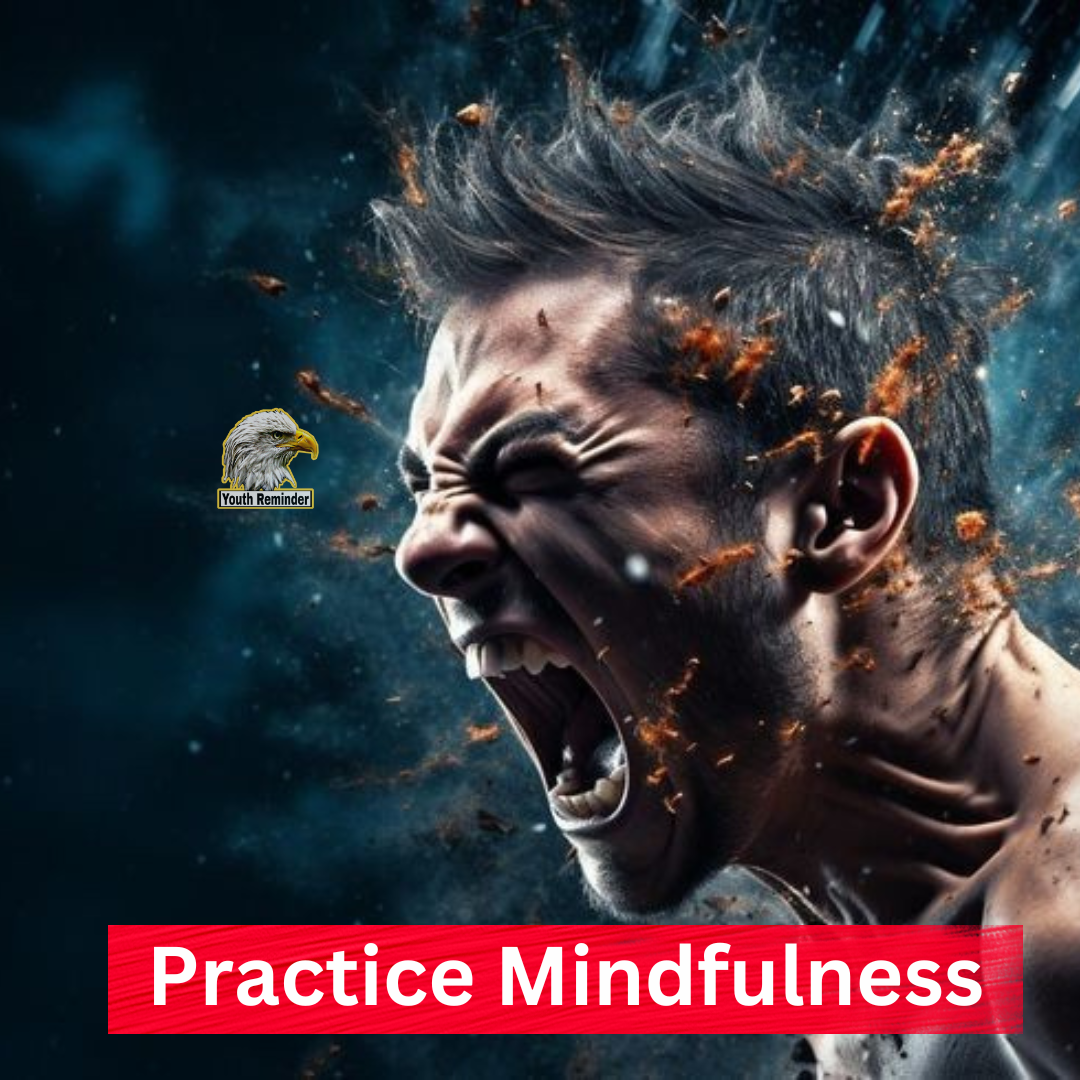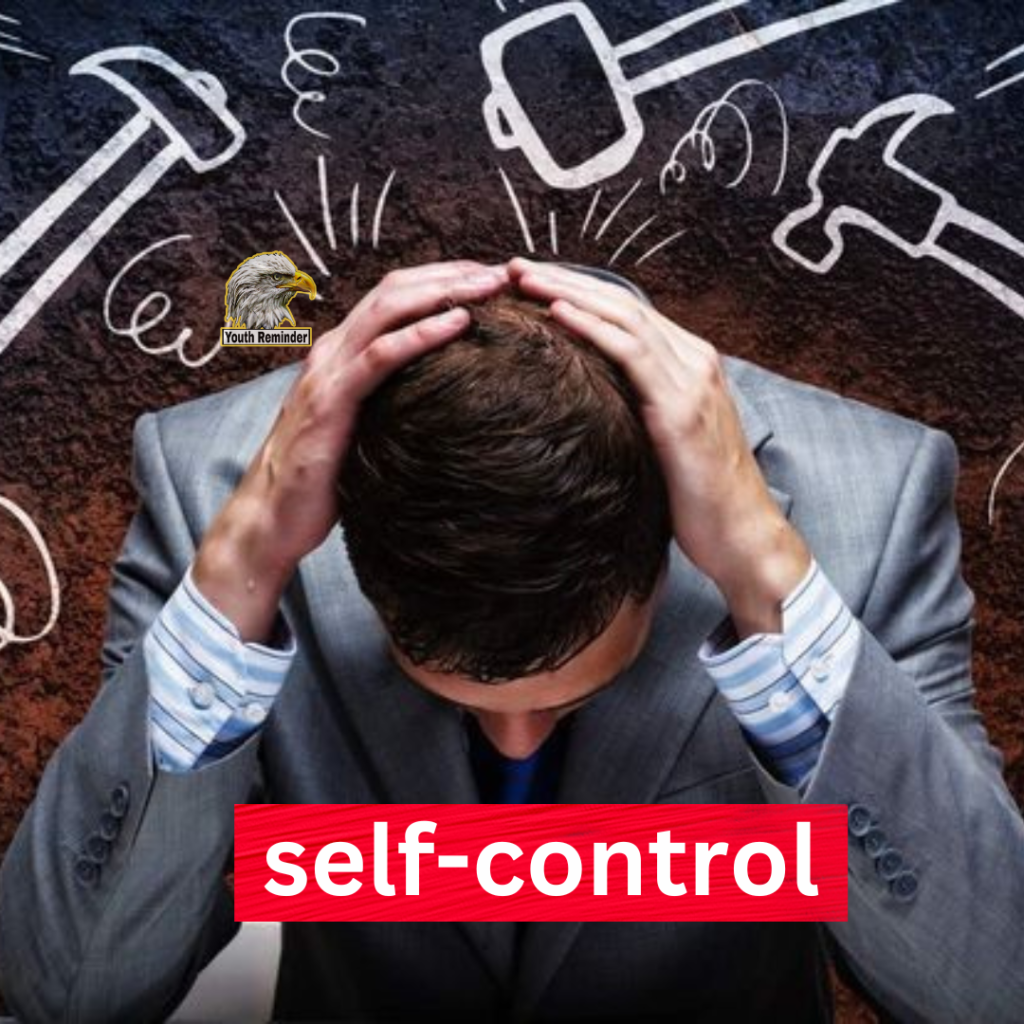
You remember the feeling when you are trying to limit your appetite to wake up early in the morning, to do something important, and yet something inside of you just wants to give in to temptation? We have all been there. It is a common struggle, and it usually develops one thing self-control.
What is self-control?
According to the American Psychological Association (APA) self-control can be defined as the ability to be in command of your behavior and restrain or inhibit your impulses.
In theory, self-control can be a positive and necessary skill; a skill that develops over time. People with established self-control often resist short-term rewards in favor of long-term achievements.
Self-control includes the management of thoughts, emotions and behaviors which helps to stick to long-term goals as well as follow cultural norms and standards. It is the skill to succumb current temptations and tendencies for the sake of better future. This ability is recommended for academic and professional achievement as it enables one to make firm decisions, stay cool in times of stress and maintain great relationships.
Types of self-control
- Impulse control is resisting the need to act on immediate impulses or desires. It is about recognizing and managing your impulses in such way that helps you take better decisions.
- Emotional self-control is controlling emotions effectively. It means being able to recognize and manage emotions and don’t let your feelings very low or become too high.
- Physical self-control refers maintaining discipline of physical activities and habits, such as food, exercise, and sleep patterns. It is controlling your body patterns and language.
Self-control is directly proportional to success
Self-control plays a vital role in your personal, professional and academic life and directly linked to success. It helps you in various aspects of life and leads you towards timely decision with implementing strategies. Here is how:
- Personal development: In the case of personal development, self-control gives confidence to individuals to make healthier lifestyle choices, such as maintaining a balanced diet, regular exercise, and have adequate sleep. By resisting the urge for immediate gratification, individuals can prefer their long-term well-being and cultivate habits that lead to greater physical and mental health.
- Professional development: In the professional world, self-control is often relates with discipline and resilience. It allows individuals to be hawk-eyed on their tasks, meet deadlines, and persevere through challenges without being diverted by setbacks or distractions. Whether it’s resisting the temptation to procrastinate, managing time effectively, or maintaining calmness under pressure, self-control is crucial for professionalism.
- Academic development: Self-control plays an important role in academic achievements of a student. Students who possess self-discipline are better equipped to manage their time efficiently, stay organized, and maintain consistent study habits. They are less likely to give up to distractions or procrastination, and are more likely to stay motivated and dedicated to their academic goals.
How to develop self-control?
As we come to know that self-control plays a very major role in success. By taking advantage of some tried-and-tested strategies, we can develop this skill and cope up many impulses and behaviors to bring a constructive change in our life.
Avoid temptation:
As you realize that exposure to certain situation can create an unwanted response, you better to find a healthy way to distract your temptation. Go for a walk, call a friend, read a good book, watch your favorite TV show or do whatever it takes to get your mind off whatever is tempting you at the moment.
Practice Mindfulness:

Cultivate mindfulness through techniques such as meditation, deep breathing exercises, or mindful awareness of daily activities. Mindfulness is a great way to strengthen your self-control muscle. This technique can also help you learning self-awareness and self-regulation, enabling you to recognize and manage impulses more effectively.
Build Healthy Habits:
Always make efforts in establishing routines and habits that support your goals and well-being. By adopting healthy and brainy activities such as regular exercise, healthy eating with enough hydration, adequate sleep, and time management practices. A persistent and consistent engagement in healthy habits strengthens with the time.
Set Clear Goals:
Define your long-term objectives and break them down into smaller, realistic and manageable portions. Defines and clear goals provide motivation and direction and make it easy to resist immediate temptations in favor of long-term benefits
Setting a lot of goals at once is usually an ineffective approach. It creates depression and anxiety, and last with loss of confidence and deprived self-control.
Practice Self-Compassion:
Keep monitoring your thoughts, emotions, and behaviors to assess your progress in developing self-control. Reflect on situations where you exercised self-control successfully and learn from any setbacks. Be kind to yourself and remember that is a skill that needs time to develop. Instead of being overly reacted on mistakes or failures, practice self-compassion and focus on learning and growth. This self-compassion is like a little treat and helps in development of your skill of self-controlling.
Remind yourself of the consequences:
Self-control may help in achieving your objectives and enhance your physical and mental health, but a lack of self-control can have a negative impact on your self-esteem, education, relationships, and general health and well-being. Reminding yourself of these consequences will help you stay motivated while improving your self.
Some last words:
Self-control is a key talent that helps to control your actions and is necessary for achieving goals. While self-control is an infinite resource, things can be done to gradually build and increase willpower.
Success is always the result of continuous effort, determination, and self-discipline. By exercising self-control, individuals can overcome short-term impulses and stay focused on the bigger picture, leading to greater accomplishments and fulfillment in both their personal and professional lives.
Developed and improved self-control can bring benefits, including improved academic performance, better health, and greater quality of life. If you struggle with self-control, you can take steps to improve your ability to manage your temptations, develop healthy routines, practice mindfulness and plan wisely in order to reach your goals.
